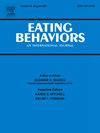“Find a life worth living”: An analysis of experiences of residential treatment for eating disorders
IF 2.4
3区 医学
Q2 PSYCHIATRY
引用次数: 0
Abstract
Residential treatment for eating disorders is becoming increasingly common, and aims to provide individualised care within a less restrictive environment than traditional inpatient treatment settings. However, research regarding participant experiences of residential care remain limited. This study employed a mixed-methods longitudinal design to explore the experiences of individuals receiving care at Australia's first residential treatment facility for eating disorders. Seventy-eight participants completed the Your Experience of Service Survey and provided responses to open-ended questions at baseline, week 4, and discharge. Three main themes were generated from the data using reflexive thematic analysis: 1) Hopes for treatment and recovery; 2) Experiences at Wandi Nerida; and 3) Strengthening hope for recovery. Results demonstrated that participants held a generally positive view of residential treatment, particularly valuing individual psychological and nutritional therapies, meal support, nature therapies, and the presence of lived experience staff. Participants perceived residential treatment as providing holistic care that enhanced their sense of hope for recovery and supported their efforts to reclaim their identity from the eating disorder. While there was variability in each person's experience, overall, participants reported feeling respected, safe, and comfortable during their time at Wandi Nerida. These findings support literature suggesting that residential treatment offers a unique opportunity to facilitate person-centred and recovery-oriented treatment that promotes autonomy in the context of individualised, holistic and evidenced-based person-centred treatment. Nonetheless, residential treatment remains only one option along the broader continuum of care and further research is needed to optimise several aspects of this model of care.
“寻找有价值的生活”:对饮食失调住院治疗经验的分析
饮食失调的住院治疗正变得越来越普遍,其目的是在比传统住院治疗环境限制更少的环境中提供个性化护理。然而,关于参与者住宿护理经历的研究仍然有限。本研究采用混合方法纵向设计,探讨在澳大利亚第一家饮食失调住院治疗机构接受护理的个人经历。78名参与者完成了“您的服务体验调查”,并在基线、第4周和出院时回答了开放式问题。利用反身性主题分析从数据中得出三个主题:1)对治疗和康复的希望;2)万达内里达经历;3)增强复苏的希望。结果表明,参与者普遍对住院治疗持积极态度,特别是重视个人心理和营养治疗、膳食支持、自然疗法和生活体验工作人员的存在。参与者认为住院治疗提供了全面的护理,增强了他们对康复的希望,并支持他们努力从饮食失调中恢复自我。虽然每个人的经历都有差异,但总体而言,参与者报告说他们在万迪奈里达期间感到受到尊重、安全和舒适。这些发现支持了文献的建议,即住院治疗提供了一个独特的机会来促进以人为本和以康复为导向的治疗,在个性化、整体和以证据为基础的以人为本的治疗背景下促进自主性。尽管如此,住院治疗仍然只是更广泛的连续护理的一种选择,需要进一步的研究来优化这种护理模式的几个方面。
本文章由计算机程序翻译,如有差异,请以英文原文为准。
求助全文
约1分钟内获得全文
求助全文
来源期刊

Eating behaviors
Multiple-
CiteScore
4.20
自引率
3.60%
发文量
65
审稿时长
60 days
期刊介绍:
Eating Behaviors is an international peer-reviewed scientific journal publishing human research on the etiology, prevention, and treatment of obesity, binge eating, and eating disorders in adults and children. Studies related to the promotion of healthy eating patterns to treat or prevent medical conditions (e.g., hypertension, diabetes mellitus, cancer) are also acceptable. Two types of manuscripts are encouraged: (1) Descriptive studies establishing functional relationships between eating behaviors and social, cognitive, environmental, attitudinal, emotional or biochemical factors; (2) Clinical outcome research evaluating the efficacy of prevention or treatment protocols.
 求助内容:
求助内容: 应助结果提醒方式:
应助结果提醒方式:


